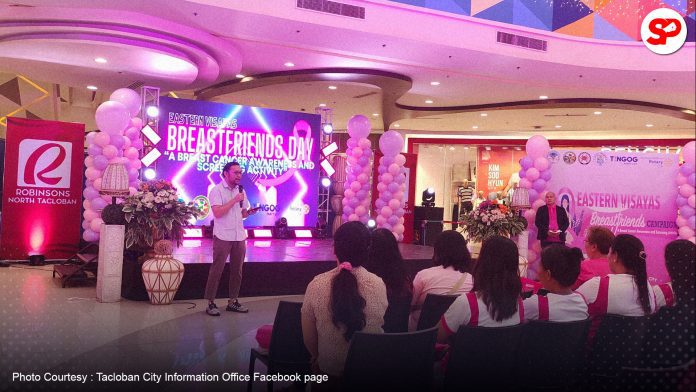By David Vera
October marks Breast Cancer Awareness Month, a global movement dedicated to highlighting the importance of early detection and treatment of one of the most prevalent cancers affecting women worldwide. This year, Eastern Visayas has joined this critical cause through the #Breastfriends Campaign, an initiative spearheaded by the Eastern Visayas Regional Medical Center (EVRMC) and various local partners. But beyond the launch events and screenings, the campaign holds deeper significance for women in the region. It addresses an urgent public health issue—Tacloban’s notably low breast cancer screening rates and the broader challenges of healthcare accessibility in the Philippines.
For years, breast cancer has been a significant health concern in the country. According to a study by the Philippine Cancer Society, the Philippines has the highest incidence of breast cancer in Southeast Asia. Despite efforts to improve awareness, access to healthcare, especially in rural regions like Eastern Visayas, remains limited. The problem lies not only in the availability of services but in cultural attitudes towards health screenings. Many women still hesitate to get screened due to fear, lack of information, or financial constraints.
In this context, the #Breastfriends Campaign is not just timely—it’s essential. With only 119 out of 45, 828 women in Tacloban aged 30-65 undergoing breast cancer screening by mid-2024, the numbers speak to a larger gap in healthcare access and awareness. The campaign seeks to close this gap by providing free breast screenings and equipping Barangay Health Workers (BHWs) with the knowledge to advocate for early detection. This bottom-up approach, focusing on community engagement, aims to break the barriers that often prevent women from seeking timely medical attention.
Historically, public health campaigns in the Philippines have faced an uphill battle in rural and underserved areas. Poor infrastructure, combined with a lack of trained medical professionals, has led to many preventable diseases being left untreated. This issue is particularly pronounced in cases like breast cancer, where early detection can dramatically improve survival rates. The #Breastfriends Campaign, therefore, reflects a broader trend towards decentralizing healthcare—bringing vital services closer to the communities that need them most.
What sets this initiative apart is its collaborative approach. The involvement of various stakeholders—from the Tacloban City Health Office and the Department of Health to organizations like the Rotary Club of Kandaya-Tacloban and the TINGOG Partylist—demonstrates that solving public health challenges requires a collective effort. These partnerships help extend the campaign’s reach, ensuring that even the most remote areas can benefit from breast cancer education and screenings.
But raising awareness is only the first step. The real challenge lies in sustaining these efforts. Breast cancer, like many health conditions, requires continuous monitoring, treatment, and post-treatment care. The long-term success of the #Breastfriends Campaign will depend on its ability to maintain momentum beyond October. Ongoing education, regular screenings, and accessible treatment options must remain at the forefront of healthcare policy in Eastern Visayas and beyond.
The significance of this campaign also touches on a deeper societal issue: the role of women in shaping their communities’ health outcomes. By empowering women to take charge of their own health and encouraging them to participate in early detection efforts, the #Breastfriends Campaign not only aims to reduce breast cancer incidence but also strengthens the role of women as health advocates in their families and communities.
As we reflect on the progress being made, it is clear that much remains to be done. Breast cancer awareness must become a year-round priority, not just a month-long campaign. Public health initiatives need to be rooted in sustained community engagement, and healthcare services must be made consistently accessible, especially in underserved regions.
The #Breastfriends Campaign is a step in the right direction. It reminds us that public health is not just about the availability of services; it’s about fostering a culture where health is prioritized, and no one is left behind.
As Breast Cancer Awareness Month continues, let us all take part in spreading the message of early detection and regular health screenings. Encourage the women in your life to get checked, and support local health initiatives that aim to bridge the gap between awareness and action. Together, we can create healthier communities where every woman has a fighting chance against breast cancer.

